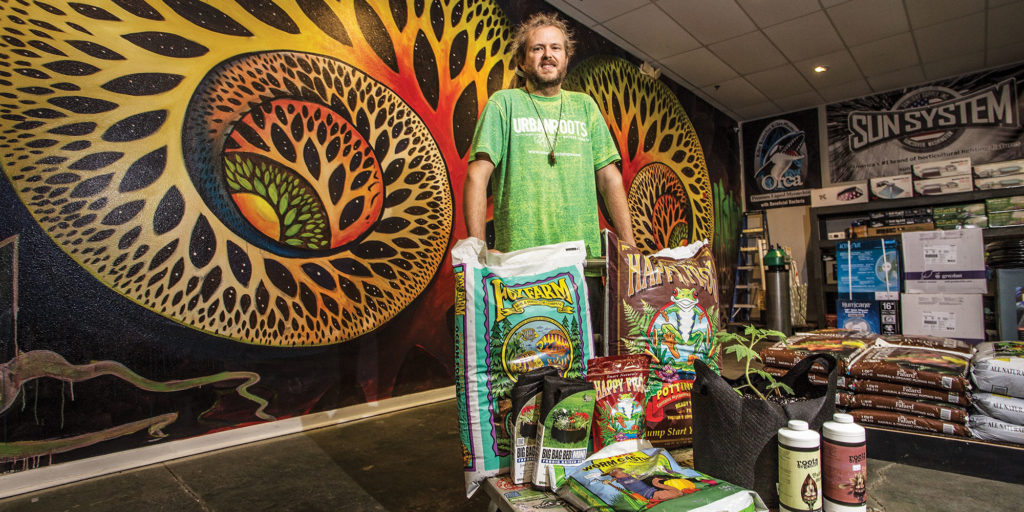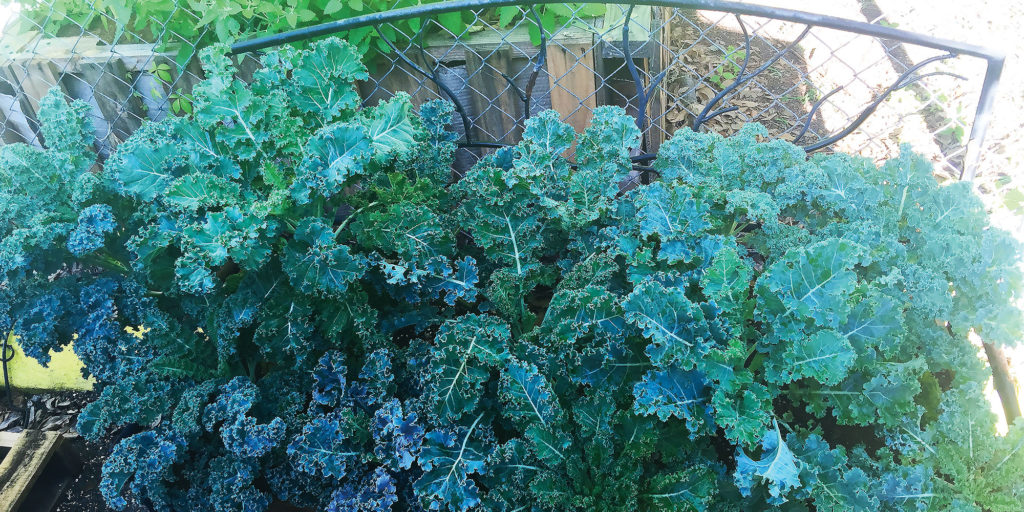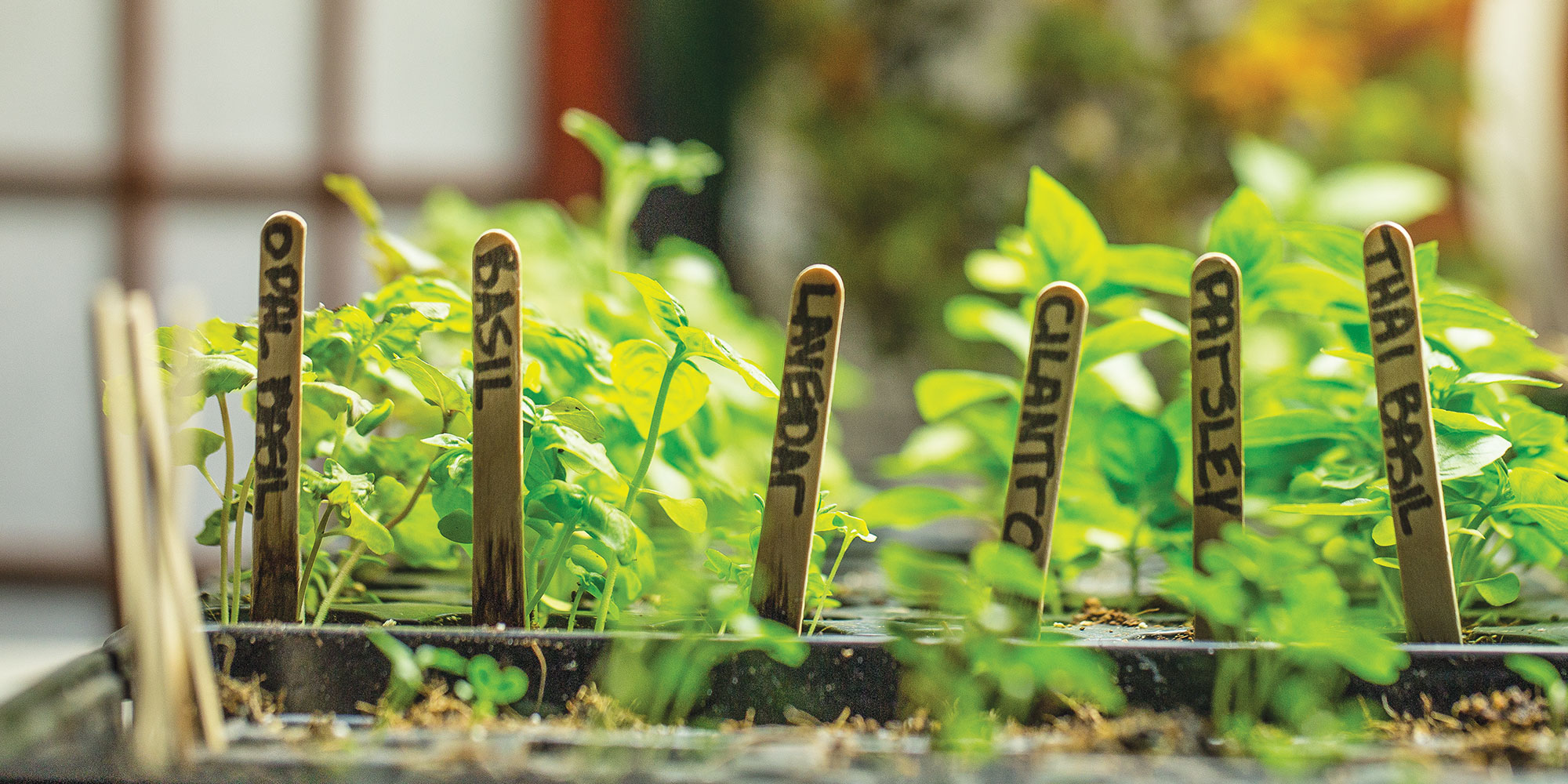We’ve read the headlines about recalled produce tainted with salmonella, the unethical labor issues, the malicious chemicals and questionable GMOs. We’ve wondered where the food on our plate comes from and whose hands it has passed through. We’ve questioned what we are putting in our bodies and found no answers.
But there is one solution: grow your own food through organic gardening.
We talked to Zach Grace, owner of Tampa’s Urban Roots Garden Supply, about how to start your own organic garden. He explained that it’s simple and doable, even for those with self-proclaimed black thumbs. Follow these tips and you’ll be surround-ed by fresh greens before you know it.

Know what you want from your garden
Before you start, know your expectations, Grace says. What are you trying to get out of this? Growing enough produce to feed your whole family is much more demanding than maintaining a small herb garden. Know what space you can devote to the garden and if it will be enough to foster those expectations.
Choose a garden supply store over a big box store
At a garden supply store like Urban Roots, the plants that are being grown are plants that are actually in season. “If you’re a big box store, you are under contract with nurseries, and the nurseries will just send them things,” Grace says. “It’s not necessarily things that are the healthiest or things that are in season to be planted.” Apart from the plants that are in season, you’ll see people with much more pas-sion about gardening who can give you proper advice. Don’t hesitate to ask them for help. “Our goal is for you to be successful — to grow food,” Grace says. “The money you spend, we want to see you get it back.”
Start with a raised bed of soil
Keeping the structure above ground, particularly in soggy South Tampa, will improve the longevity of the organic materials inside. “If you build a structure above ground and protect it, everything you buy and put in there will build value over time,” Grace says. “You’re not going to have to replace that soil every season when you replace plants or put new seeds in it.” Be conscious of the pros and cons of each potential bed material. Cinder blocks can leach chemicals and should only be used for flowers. Recycled fabric material is best for those who want something moveable and less permanent. Grace recommends building the bed out of cedar wood. “Cedar is bug resistant, safer and untreated,” Grace says. “If you buy a pressure-treated wood, for example, or something that has a deck stain on it, when it rains or as you water, it’s going to leach into your soil.”
Pick your soil
To stay natural, Grace advises choosing an organic, amended soil. An amended soil already has the necessary fertilizer and nutrients in it, thereby removing the burden of buying extra fertilizer and adding it in your-self. However, he says, if you decide to mix from scratch, mix ⅓ peat moss material, ⅓ an aeration agent, and ⅓ of compost and then add a dry fertilizer. Another way to keep your soil organic and improve longevity of your garden is to start your own compost from old plant materials.

Pay attention to the seasons
Grace says gardening newbies’ biggest mistake is not paying attention to what’s in season. During the late fall and winter, there is a long list of plants to choose from. “Plants like cauliflower, broccoli, Brussels sprouts, celery, spinach, lettuces, kale and other leafy greens love the cold weather,” Grace says. Grace also noted that herbs prefer cooler weather and should be planted throughout fall and winter. He recommends buying heirloom seeds, which have no hybrids are both non-GMO and organic.
Organic gardening is not higher maintenance
Grace argued that it doesn’t matter whether you have an organic or chemical garden; you have to invest the time to get results. Changing your morning routine is a good way of making time for the garden. Pay attention to the temperatures and insects, and use preventative measures to protect your crop. “If you want to be a strong, productive human, you need good nutrition to make sure your body gets what it needs,” Grace said. “Plants are the same way.”
URBAN ROOTS GARDEN SUPPLY
11780 N. Dale Mabry Hwy.
(813) 962-7668
urbanrootstampa.com



